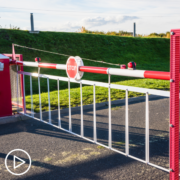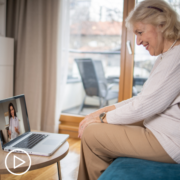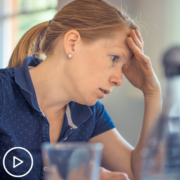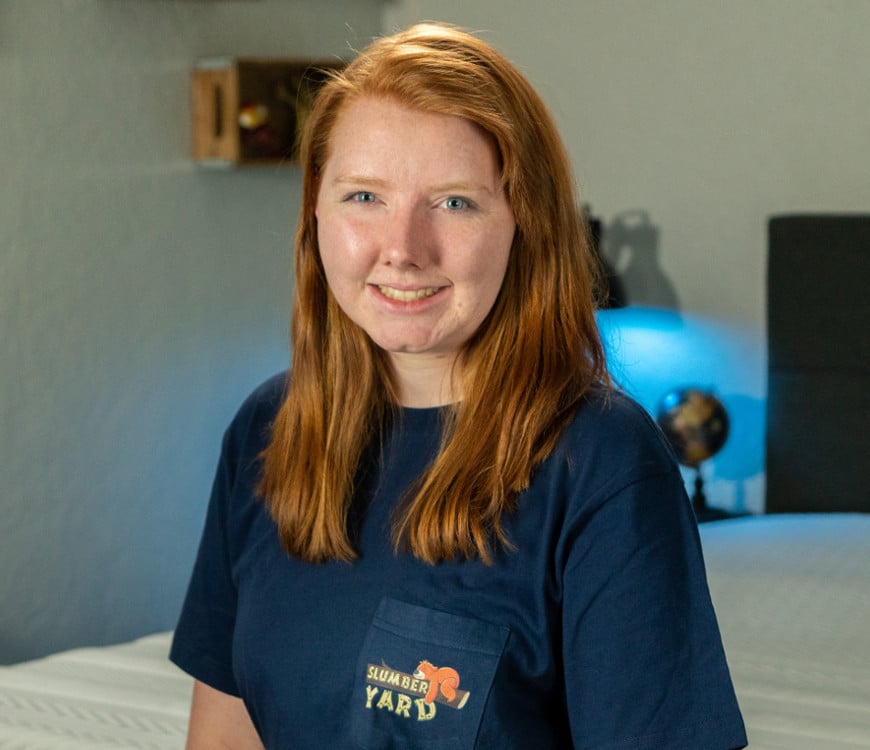Battling cancer is, undoubtedly, tough. On any given day, you might find yourself feeling so sick that you can’t even get out of bed. Being relegated to bed and struggling to even fall asleep can feel utterly disheartening. Adopting some healthy habits in your sleep routine can help to ease your body and mind into sleep more quickly and easily, letting you get some much needed rest and recharge.
Why Does Cancer Alter Your Sleep?
There are a lot of side-effects that you might experience as a result of your cancer treatment. Though one of the most common side-effects is fatigue, many patients also find that they have difficulty sleeping, which only exacerbates their feeling of fatigue and sleep-deprivation. These sleeping problems can be the result of many factors such as newly developed sleep disorders, physical triggers, and psychological triggers.
Sleep Disorders
It is incredibly common for cancer patients to experience insomnia, which refers to any number of factors that make it difficult for someone to fall asleep and/or stay asleep. People with a serious illness are at an increased risk for insomnia. In fact, while about 20% to 30% of the healthy population suffers insomnia, over half of all cancer patients have reported facing periods of insomnia.
To be clear, insomnia is not caused by cancer, but it is a precipitating issue that results from the physical and emotional stress that often accompanies a cancer diagnosis.
Other sleep disorders may also manifest, such as sleep apnea, hypersomnia, circadian rhythm disorders, parasomnia, and restless leg syndrome. All of these make it difficult for sufferers to fall asleep and sleep soundly through the night, therefore deteriorating sleep quality and causing daytime fatigue and exhaustion.
Physical Triggers
Cancer can cause a great deal of pain and discomfort, which makes it understandably difficult to fall asleep as well. Tumors and treatments alike may result in troublesome pressure in isolated spots on the body or all throughout, as well as gastrointestinal issues, breathing problems, fevers and itching, to name just a few physical symptoms. When your body is uncomfortable, it is incredibly difficult to relax and lull yourself into restful sleep.
Psychological Triggers
Additionally, cancer comes with its fair share of life changes and psychological stressors. Fear and anxiety related to your diagnosis and prognosis alone can be enough to keep you up at night.
Following your diagnosis, you might also experience career, relationship, and body image changes which cause additional stress. We understand that cancer can be a distressing experience, and many patients are at an increased risk for anxiety and depression.
If you are experiencing any troublesome side-effects, whether they are related to your sleep pattern, your physical well-being, or your mental health, it is important to consult your oncologist and other medical professionals for their advice and assistance in easing your symptoms.
How Having A Routine Makes It Easier To Fall Asleep And Sleep Well
For the sake of your health and quality of life, sleep is perhaps the most important thing you can do for yourself. A good night’s sleep can increase productivity, improve mood, and expedite the body’s natural healing processes. This is a vital part of everyone’s life, not just those who are battling illness—still, up to half of all Americans report not getting enough high-quality sleep each night.
If you are kept up by physical pain or emotional stress, implementing a bedtime routine that works to calm your mind and body in preparation for sleep might be the change that you need. Your routine does not have to be overly complicated, especially if you don’t have a whole lot of time or energy in the evening, but a few moments of intentionality before bed can work wonders for your sleep quality and relieve daytime fatigue and sleepiness.
1) Take A Bath
We all like to be warm and cozy in bed at night (hello, fuzzy blankets!) but it is actually really important for your core body temperature to be fairly cool in order to induce sleep effectively. Our bodies follow circadian rhythms which dictate when to sleep and when to wake up. At night, your body naturally cools down and begins to release melatonin and other sleep hormones. Taking a bath or warm shower before bed can have several positive benefits to your sleep, not the least of which being a reduction in your core body temperature.
It may seem counterintuitive that soaking in hot water helps to cool you down, but when you get out of the tub the water begins to evaporate from your skin, cooling your core and cuing your circadian rhythm to do its thing. Baths also improve circulation, ease aches and pains, and help you relax and disconnect before bed.
If you decide to implement a bath or shower into your bedtime routine, go ahead and make it a real treat for yourself. Even just fifteen minutes of uninterrupted relaxation time can have major benefits. Light a calming candle or turn on soothing music, allow yourself to let go of any stressful thoughts or to dos and just breathe. We recommend bathing about one to two hours before bed so that your body has enough time to fully cool down and reap all the cleansing rewards of your pre-slumber soak.
2) Stretch
Practicing some simple yoga stretches before bed can also help sooth your mind and body before bed. In fact, exercising regularly has been seen to have major benefits on sleep quality. Even if you are someone who abhors spending time in the gym or for whom running is a form of torture, you can get in touch with your body and improve your sleep with just a few gentle stretches or a basic yoga practice before bed.
Getting your body moving releases endorphins and enhances mental clarity. If you plan on participating in a workout where you break a bit more of a sweat, we recommend scheduling that earlier in the day so your body isn’t too warm or wired before bed. Stretching and breathing exercises, however, have the same positive benefits and can be done right before bed as they help to relax your mind and body.
Not only does yoga loosen up your muscles and help to relieve pain, it also encourages mindfulness and developing a trust in one’s own body. After a cancer diagnosis, it can be difficult to have faith in your body’s ability to keep you healthy. When you practice yoga, however, the process allows you to see your strength and flexibility improve over time. You will be amazed by what your body is able to do!
Getting in touch with your mind and body through a yoga practice or stretching routine has also been seen to have positive spiritual benefits for practitioners. No matter what your spiritual discipline is, taking time out of your day to clear your mind and ground your body can be enlightening and spiritually encouraging. Use the time that you are stretching to engage in prayer, meditation, or simply focus on controlling your breathing.
3) Keep A Journal
Do you find that as soon as your head hits your pillow it begins swirling with all of your unfinished tasks and worries? You are not alone! Writing in a journal each night before bed can help to ease your mind and stave off stress and anxiety that commonly keeps you up at night.
What you decide to write is up to you. You can jot down a recount of what you did throughout the day, or make a plan for what you intend on doing the following day. Perhaps you have a mantra of aspiration phrase that encourages you? Try writing this down each night or compose a list of things that you are grateful for or proud of from each day. If you are struggling with day time fatigue, using your journal as a place to record your daily fatigue level (on a scale of 1-10) and the activities that you participated in throughout the day can be useful for figuring out your fatigue triggers and working to manage your energy efficiently.
Ultimately, having a place to clear your head and process your thoughts is a great addition to any bedtime routine. It does not have to take a whole lot of time, nor does it have to follow any sort of structure. This journal should be for you and you alone, so don’t overthink it, just get to jotting (and then get to snoozing!)
Wrapping Up
Ultimately, changing your routine can create a sense of regularity and control, helping to ease your mind and body into sleep. Routine changes, however, are no substitute for medical care and a strong support system. So, if you are having trouble sleeping, do not hesitate to mention it to your doctor as this might be a symptom of a larger problem.
Melissa Bondy is a content writer and bedding buff for The Slumber Yard. She is part of a team dedicated to bringing honest mattress reviews and helpful sleep tips to consumers. In her free time, Melissa enjoys studying poetry, kayaking on Lake Tahoe, drinking coffee, and training her puppy.


















